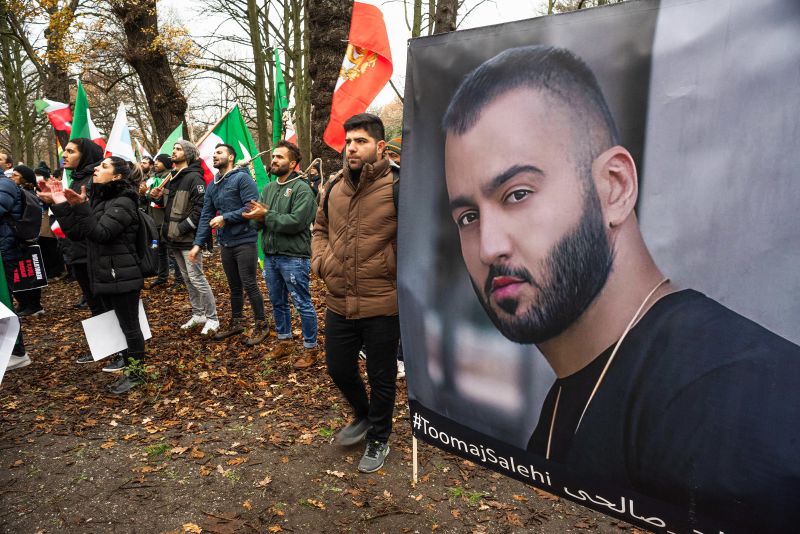Toomaj Salehi, a prominent Iranian rapper, has been sentenced to death after participating in a protest. This heartbreaking news has shocked both the Persian music industry and the international community, raising concerns about the state of human rights in Iran. This incident has thrown a spotlight on the harsh reality of artistic expression limitations within the restrictive Iranian regime.
Toomaj Salehi plays a significant part in the Iranian music scene. His well-known tracks, typically infused with the elements of hip hop and rap, have gained widespread popularity among the Iranian youth and have valuable content that portrays the societal and political conditions of Iran. Using his platform, the rapper poignantly voices socio-political concerns through his music, thereby positioning himself as a fearless changemaker in a predominantly controlled art space.
However, Toomaj’s art, sustenance, and activism were radically impeded when he was arrested for participating in protests against the Iranian government’s policies. The demonstration, although peaceful, was deemed hostile by the government, leading to Toomaj’s arrest and subsequent death sentence.
This sentencing is a testament to the tight grip the Iranian government maintains over freedom of speech and artistic expression. In Iran, this is not the first case where political dissent or any form of opposition against the government has led to dire consequences. With this penalty, Iran not only suppresses an influential voice and silences a platform for the Iranian youth, but they also raise global concerns regarding their commitment to the basic tenets of human rights.
Notably, Toomaj’s sentence has also resulted in an uproar in the international arena, with organizations and individuals around the world chiming in to support him and protest against this horrific injustice. Multiple activists and human rights organizations have vehemently condemned Iran’s harsh crackdown on peaceful protests, highlighting Toomaj’s case as a blatant example of the systemic abuse of freedom of expression.
This situation also reignites the conversation on how artists worldwide often bear the brunt of authoritarian regimes. Artists, with their influence and platforms, often become the voice of the voiceless and present a threat to systems that thrive on censorship and suppression. Therefore, they often face brutal political persecution, as seen in Toomaj’s case.
The fate of Toomaj Salehi has laid bare the systematic brutality against those who dare to challenge the power dynamics in Iran. It also verifies the need for intensified global scrutiny and consequential diplomatic actions against such violations of fundamental human rights. Toomaj’s art and courage serve as a stark reminder to the world – that freedom of speech, artistic expression, and the right to peaceful protest should be preserved and defended, regardless of one’s geographical location.
In the wider scope, this unfortunate situation brings to light the complexities surrounding arts and politics. It underscores the need for musicians and artists, like Toomaj, to be given the liberty and safety to express their views without facing such severe penalties.
Through all this, Toomaj Salehi’s situation emerges as a symbol of political dissent and the high price artists pay for their courageous stance. However grim the circumstances might be, his life, legacy and the resulting international debate can potentially stimulate reforms in the structure of the Iranian artistic landscape and the country’s unreserved violation of human rights.
Toomaj Salehi, the man, might be under confinement, but the voices he ignited through his art continue to reverberate, rallying for justice not just for him, but artists worldwide facing similar repressions.




